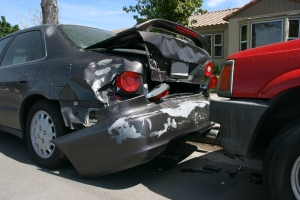 The abject pain of clinical depression is magnified expontentially when one considers that sufferers usually blame themselves for their plight. “What’s wrong with me?” is a common refrain. Most people with depression feel “bad” to their core. They can’t always articulate why this is so, but they know that they can’t shake their own self-condemnation. There is no place to hide from it, no true rest for the weariness it brings. We lay awake at night and hope that tomorrow it will be better.
The abject pain of clinical depression is magnified expontentially when one considers that sufferers usually blame themselves for their plight. “What’s wrong with me?” is a common refrain. Most people with depression feel “bad” to their core. They can’t always articulate why this is so, but they know that they can’t shake their own self-condemnation. There is no place to hide from it, no true rest for the weariness it brings. We lay awake at night and hope that tomorrow it will be better.
I had a conversation last week with a mental health professional who asked me, “What in the world do lawyers have to be depressed about? They’re rich and powerful. Lawyers should stop complaining and realize how good they have it.” Yet a lack of gratefulness has little to do with depression. I used to recite a list of things I had to be grateful about – and there were many – but it all fell on depression’s deaf ears.
When others tell us to “snap out of it,” we may buy it hook, line and sinker and even believe that they know what they’re talking about. Well-meaning friends may try to reign in our sorrow by suggesting that they can identify with our suffering.
In her book about her own depression, An Unquiet Mind: A Memoir of Mood and Madness, psychiatrist, Kay Redfield Jamison writes:
“Others imply that they know what is it is like to be depressed because they have gone through a divorce, lost a job, or broken up with someone. But these experiences carry with them feelings. Depression, instead, is flat, hollow, and unendurable.”
Such attempts by others, even when well intentioned, always brought about a deep sense of loneliness in me. I had, like most people, gone through my fair share of difficult experiences in life like losing a job. But this experience – this blast furnace of melancholy – was not that. We get over losses in our lives, we adapt. We can’t just “get over” depression.
There is a sense that we have been rear-ended by depression; out of seemingly nowhere, our lives are crashed into and changed forever. In a very real sense, we will never be the same. Some will recover from their depression, many will not. That’s not a very popular thing to say, but it’s been my experience from talking with hundreds of lawyers from around the country who I’ve been privileged to share with. For many, recovery will be an on-again off-again sort of affair. They will have to work hard to recover and make lots of effort to stay healthy.
Part of the reason why too many lawyers don’t get better is simple: most don’t get any form of treatment for their depression. A study by the National Institute of Mental Health revealed that as many as 80% of people in this country get no form of help whatsoever. Looking out a window, I wonder how high the rate is for lawyers. It’s most likely a mixed bag. While it’s true that people from a higher socio-economic class tend to get treatment – mostly because of their access to good medical care – most attorneys still don’t because of the stigma associated with mental illness.
Such shame – dumped on people from others and the self-inflicted variety – is particularly deep for lawyers. This is so because of the myths surrounding their internal world. Lawyers feel like they’re supposed to be veritable Supermen able to bend steal and solve all manner of a clients’ problems without wrinkling their power blue suit. If they’re in pain, they’re told to “suck it up.” We live in a nation of winners where, deep down, many feel like losers.
This sort of mentality, in part, explains the epidemic rates of depression in the law. Studies have concluded that lawyers suffer from depression at a rate of twice the national average or about 20%. This means that 200,000 out of the one million lawyers in this country suffer from depression.
What’s a depressed lawyer to do? First, one must stop blaming oneself. This is tough because most people with depression have been living with this cognitive distortion for a long time – maybe their whole lives – and this corrosive self-talk promotes the viscous cycle that is clinical depression. If one can’t stop blaming oneself for having depression, it’s tough to get better. Little by little, we need to learn to let that bullshit go and start walking a healthier path.
The poem, The Journey, by Mary Oliver, captures some sense of this path for me. I hope it will for you.
One day you finally knew
what you had to do, and began,
though the voices around you
kept shouting
their bad advice – –
though the whole house
began to tremble
and you felt the old tug
at your ankles.
“Mend my life!”
each voice cried.
But you didn’t stop.
You knew what you had to do,
though the wind pried
with its stiff fingers
at the very foundations,
though their melancholy
was terrible.
It was already late
enough, and a wild night,
and the road full of fallen
branches and stones.
But little by little,
as you left their voices behind,
the stars began to burn
through the sheets of clouds,
and there was a new voice
which you slowly
recognized as your own,
that kept you company
as you strode deeper and deeper
into the world,
determined to do
the only thing you could do – –
determined to save
the only life you could save.











